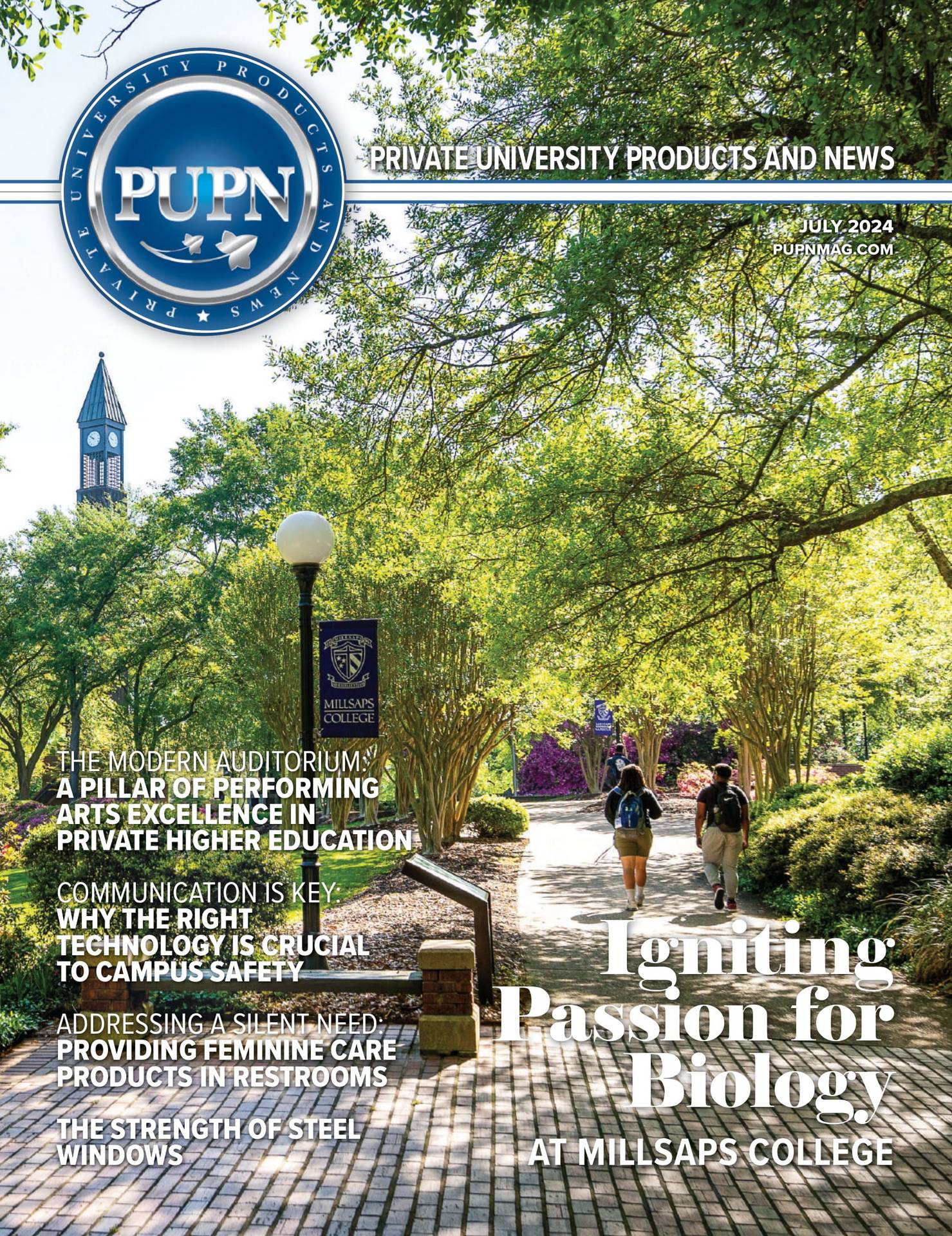Tetel’s lab is dedicated to women’s health, with projects that are all connected thematically to demystifying estrogens through open conversations about female reproductive systems and innovative partnerships with other institutions to explore the science that will improve women’s health and even save lives.
In addition to conducting cutting-edge research and engaging in strategic alliances with other universities, pharmaceutical companies, and clinics, Tetel is also passionate about training Wellesley students to be exemplary researchers themselves through honest, involved, committed mentoring.
Estrogens and the Gut Microbiome
Recently, Tetel and his team have been exploring how estrogens work to regulate metabolism. Sparked by a desire to understand why post-menopausal women tend to gain weight, as their levels of estrogens decrease, they want to find solutions to help protect these women from increased risk of cancer, diabetes, obesity, and heart disease. The metabolic effects of estrogens are similar in women and female mice.
What they, and others, were able to demonstrate is that ovariectomized mice that lack estrogens and are fed a high-fat diet invariably become obese, while mice treated with estrogens were able to stay lean. From there, the lab began experiments to better understand how these estrogens “influence the gut microbiome, which is a collection of microorganisms (bacteria, viruses, archaea, protozoa and fungi), their genomes and the factors they produce in the gut.”
The importance of learning more about the gut microbiome cannot be overstated. Studies have implicated the gut microbiome in “a variety of disorders and diseases,” Tetel notes, including mood disorders—such as depression and anxiety—and physical issues, such as diabetes and obesity.
A Day in the Tetel Lab
Though no two days are exactly the same, in that everyone is engaged in a variety of tasks and there are multiple ongoing projects, the lab employs two full-time researchers. Recently, one of the lab’s research scientists, Dr. Kalpana Acharya, was awarded a one-year grant of $125,000 from the NIH to fund her work with Dr. Jason Kim at UMass Medical School.
Through this partnership, they were better able to study the effects of diet and estrogens on gut microbiota and metabolism in female mice. In any given week, Acharya may be at Wellesley College or UMass Medical School’s Mouse Metabolic Phenotyping Center, writing an article, analyzing data, or training students. Madeline Graham, the second full-time employee, is a research assistant who graduated from Wellesley in 2017 and plans to earn an MD.
Graham analyzes data, writes up studies, runs behavioral tests on the mice, and does molecular assays—extracting DNA from samples. Graham recalls that in one of her first undergraduate classes at Wellesley, she worked with Tetel and was quickly inspired to do research with him. In using only male mice for animal studies, she explains, scientists were able to sidestep the problem of tracking cycles and hormonal changes that affected female mice; for far too long, the prevailing opinion was that the work was “close enough” to generalize about all male and female mice and incorrectly extrapolate to humans.
Now, as Graham explains, we know that there’s far more at play than hormonal differences. In reminding the scientific community of the importance of having female models, Graham argues, Tetel is “challenging dogma” while also “revisiting questions” that need more scientific exploration.
A Posse Scholar Joins the Lab
In collaboration with a pharmaceutical company, Tetel and his team were able to extend these studies to focus on anxiety in female mice as it related to the effects of gut microbiota and estrogens. Abigail Parakoyi is a rising junior and a Posse Scholar who plans to earn an PhD in Neuroendocrinology.
The Posse Foundation views diversity as the key to solving our nation’s most significant problems; as such, they work to identify, recruit, and train people who exhibit leadership potential. The Posse Foundation partners with colleges and universities who offer Posse Scholars full-tuition scholarships and weekly mentoring by faculty members, as well as other support.
Parakoyi met Tetel before her first semester, during an Immersion Program that offered faculty and students a chance to connect. In their chat, she recalls how authentic he seemed about his interest in her work. What struck her even more, however, was how he was “so honest and passionate about his work.”
When she later asked him to be her adviser, she explains he offered aid in many ways— but one of the most fundamental was in his honesty and directness when she needed advice or direction. She also admires his passion about women’s health and the way he puts together teams in his lab where everyone involved is fully committed to the work. In her own work in the lab, Parakoyi notes, “Being a part of that project was really humbling and exciting.”
Collaboration with Mayo Clinic
There is another ongoing project, Tetel explains, that is a little more esoteric; a student’s senior thesis, this project explores the influence of menstrual cycle, diet, exercise, and mood on the vaginal microbiome. Tetel notes the vaginal microbiome is understudied, particularly as it relates to health, wellness, and mood.
The project—“Microbiome Monitoring in Wellesley Students and Long-term Prevention of Endometrial and Ovarian Cancer: A Mayo Clinic and Wellesley College Collaboration”— is focused on the essential need to find preventative strategies to combat the high rate of cancers of the reproductive tract that are occurring in our country. Wellesley students participating in the study are collecting vaginal swabs daily, which is ultimately going to offer an in-depth analysis unlike anything ever done before.
As an extra benefit, because the students are all eating at the campus cafeteria, researchers can easily download nutritional information to add to their data. Wellesley College psychology professor Christen Deveney, Wellesley Neuroscience student Stephanie Song, and Tetel are working with Dr. Marina Walther-Antonio—from the Department of Surgery at Mayo Clinic—as well as Mayo Clinic biophysicist Dr. Nicholas Chia.
In the Center for Individualized Medicine Program at Mayo Clinic, Chia and surgery researchers are aligning with university partners, such as Wellesley, to combine medicine with evolutionary and ecological theory and bioinformatics. The concept driving these strategic partnerships is that exploring the ways intersections of evolution and systems biology can offer a larger picture for how biological evolution works on regulatory networks within the body.
Chia shares that what most impresses him about Tetel is his colleague’s focus and dedication. Even while noting that the concept of “making the world a better place” is a phrase that has become almost cliché, Chia asserts that—with Tetel—this push to improve the world is genuine, and that authenticity shows in his work on various projects and his relationships with his students.
Chia is also excited to see the links they are uncovering between the gut microbiome and cancer; though they are unsure what’s causative just yet, having this collection and the ability to track these individuals is incredibly valuable. Long-term, they hope to uncover both “primary and secondary prevention interventions” that could have a dramatic impact on rates of ovarian cancer and endometrial cancer, as well as reducing the rate of cases that aren’t diagnosed until advanced stages of the disease.
Students Invested in Making a Difference
The Mayo Clinic partnership, Tetel explains, “aims to discover and validate predictive and early detection microbiome biomarkers for endometrial malignancy by unifying the cutting-edge research with a student body invested in making a difference through service and leadership.” Because “unseen environmental risk factors drive the majority of these cancer cases,” they hope the discovery of the human microbiome— “the trillions of bacteria that live in concert with our human cells”—will show us new ways to understand how health is “intertwined with maintaining a healthy microbial ecosystem.”
Additionally, while the vaginal microbiome appears to be a fundamental factor in reproductive health and avoiding cancers of the reproductive tract, the factors of the vaginal microbiome have not been explored. To know how various factors can regulate and influence this microbiome, the partnership is investigating “how the menstrual cycle, diet, exercise and mood influence the vaginal microbiome of Wellesley students.”
The same student-participants will be monitored for follow-up at the 10-year and 20-year marks to assess the risks of these reproductive cancers—a follow-up assisted by Wellesley’s incredibly strong Alumnae Association. This long-term monitoring, Tetel asserts, “may lead to preventative strategies that will ultimately extend reproductive health and enhance women’s health by decreasing the incidences of endometrial and ovarian cancer.”
The partnership’s central hypothesis is that “specific vaginal microbiome signatures can be used as an early detection tool for the malignancy and endometrial microbiome signatures and be utilized as predictors for the future development of the disease.” Their research aims to detect the disease in asymptomatic patients to allow a window for intervention and early treatment, and these female students at Wellesley are selflessly invested in assisting the researchers as they work to save lives.
Inspired Research Students
In many cases, students join Tetel’s lab during their first year and remain in the lab doing research for all of their undergraduate years. In working so closely with research students in his lab, Tetel notes that the transformation he observes over four years is profound. For instance, Tetel shares a story of a first-year student who would bring her “perfectly analyzed and organized” data to their lab meetings and then wait for him to tell her the next step.
He shares, “I remember during the beginning of her sophomore year, the first time I asked her, ‘So what’s your next experiment?’ She gave me a ‘deer-in-the-head- lights’ look and remained quiet.” He encouraged her to consider her next move and return the following day; when she came back to Tetel, she “timidly suggested the next experiment she could try.”
However, over the next three years, she “found her voice” and arrived to their meetings ready to report the next experiment she was planning. He adds, “She developed into a wonderfully confident scientist.” Now, that woman is a successful physician engaged in her own research.










